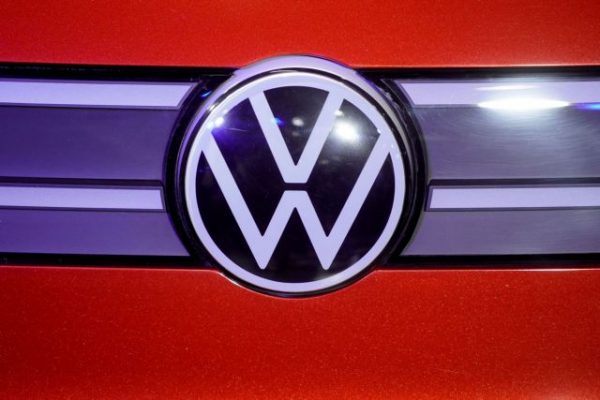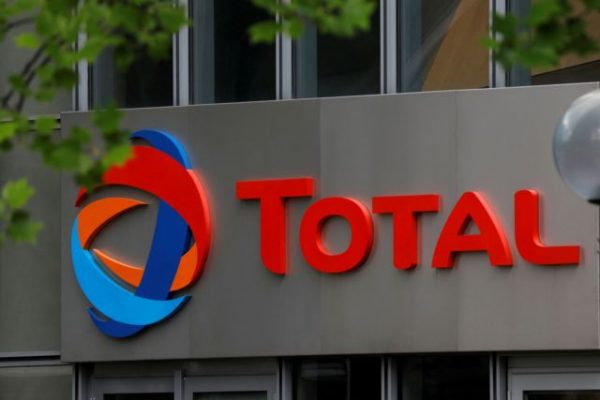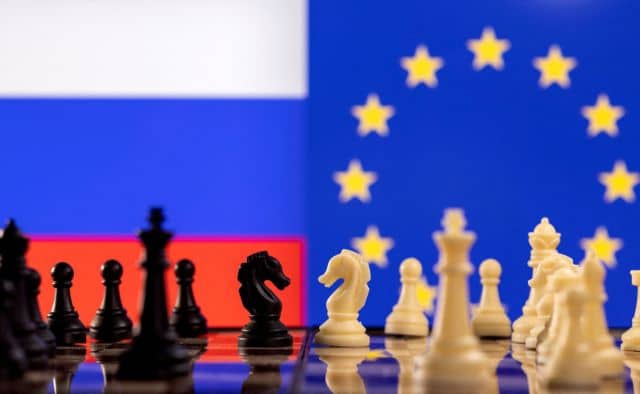As uncertainty prevails over developments on the Ukrainian front, EU "27" leaders are holding an informal meeting. However, the discussion on sanctions against Russia has been postponed, as there is no agreement.
New sanctions against Russia in the event of an invasion of Ukraine were to be on the agenda of today's emergency EU summit in Brussels. This is despite the fact that decisions were not to be taken, as it is an informal process.
The original plan was for the leaders of the "27" to be informed about the preparations made by the Commission by its chairman, but also to highlight the points on which an agreement has been reached and those on which no compromise has yet been found.
In this context, in fact, Ursula von der Leyen had taken care yesterday to contact two people who can assess the opposite side: The damage that the European economy will suffer in the event that sanctions are finally imposed against Russia. This is, of course, the head of the ECB, Christine Lagarde, and her predecessor and current Prime Minister of Italy, Mario Draghi.
That's a lot of money!
What is certain is that Europeans know that reaching unanimity will not be an easy task - even in the event of war. It is well known, moreover, that there are many in the ranks of the partners (Austria, Hungary, etc.) who state that they are strongly opposed to the scenario of a complete rupture with Moscow, while even in Germany there are a minority who support it.
That is why, as it became known a while ago, they decided not to even put the issue of sanctions on their agenda - fearing, obviously, that the sharp disagreements will become known and will be exposed to the USA (and Russia).
The reason for all this is, of course, the economic and business ties between Europe and Russia, which - unlike in the case of the United States - are strong. In other words: Money is a lot and Europeans will think about it two or three times before throwing it in the mill of geopolitical contradictions and conflicts.

"The sanctions will be aimed at maximizing costs for the Kremlin, its major banks and energy groups. At the same time, do not jeopardize the energy supplies of the Russian-dependent continent, nor incur high costs for European companies with strong ties to Russia - such as the German industrial giant Siemens (1% of sales "from the specific market), the Italian tire manufacturer Pirelli and car manufacturers such as Volkswagen and Mercedes-Benz", the Associated Press notes characteristically in a relevant report.
They are watching, anxious, waiting…
For the time being, European companies have no choice but to watch, worry and wait. "The policy defines the rules by which we operate as a company (…) If the framework changes, we will evaluate it and decide how to deal with it," the German BMW said in a statement.
"Honestly, we are not the ones who practice geopolitics. We respect the rules, but we serve our Italian customers and we do it in all countries, including Russia. "If the rules change and cause obstacles, we will take the necessary steps," said the CEO of the Italian bank Intesa SanPaolo.

"We continue to invest and believe in the growth of the Russian market and internationalization," said Trondchetti Provera, CEO of Pirelli, a Chinese-owned company acquired by the Chinese and employing about 2.500 people in Russia. He expressed the hope that "in the end a point of balance will be found".
As for the French Total, it has its own reasons for being on alert: It holds a 19,4% stake in Russia's Novatek, which is active in gas production and will probably be the target of sanctions.
Kremlin channels, concern for China
For all these reasons, and despite the climate of political tension, European companies continue to maintain autonomous channels of communication with the Kremlin, as evidenced by the teleconference they had with Vladimir Putin, dozens of whom were based in Italy, last month.

Among other things, there is another aspect that makes them worried: The "freezing" of their own activities in Russia could pave the way for their Chinese competitors. They cite as an example the fact that just two years after the sanctions of 2014 (in response to the annexation of Crimea to the Russian Federation), ie in 2016, China exported to Russia more mechanical equipment compared to Germany.
However, there are those who believe that the consequences for Europe will not be serious - and they will certainly be manageable, with the right state aid. "Despite its size and dynamics, the poor management of the Russian economy has made it a non-significant market for Europe," said Berenberg, the bank's chief economist.
Holger Schmiding added that only 1,9% of Germany's exports go to Russia, compared to 5,6% to Poland. Even so, given the strategic importance of energy, imposing harsh sanctions will not be easy. And this will be seen in today's extraordinary session of the "27".
in.gr
